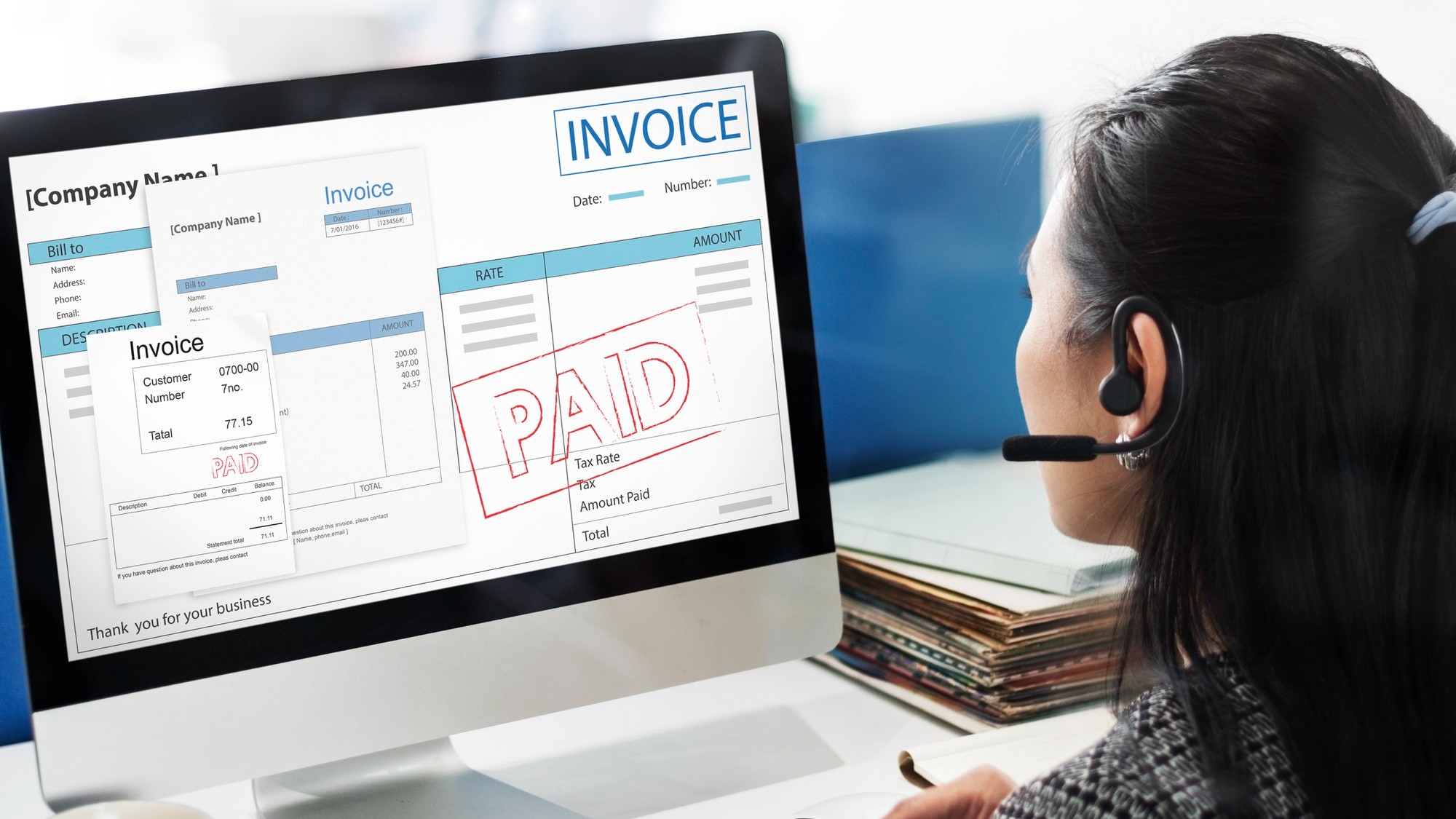Financial
The Clock is Ticking on UAE eInvoicing as the 2026 Deadline Nears

By Nimish Goel, Partner and Head of GCC, Dhruva Consultants
The UAE has never been a jurisdiction that shies away from bold reforms. From introducing VAT in 2018 to rolling out corporate tax in 2023, the country has consistently demonstrated its willingness to align with global best practices in fiscal governance. Now, with the Federal Tax Authority (FTA) and Ministry of Finance (MoF) preparing to enforce a nationwide eInvoicing regime by July 2026, the stakes are even higher.

This is not simply another compliance box to tick. eInvoicing represents a fundamental shift in the way financial data is created, exchanged, and monitored. Once live, every invoice, credit note, representing economic activity—whether for VAT-registered businesses, exempt transactions, out of scope transactions or even historically less scrutinized activities such as financial services, real estate, and designated zones—will be generated in a structured XML format, routed through accredited service providers, and validated in real time.
For finance leaders, the message is clear. The era of static PDFs and delayed reporting is over.
From paper trails to real time oversight
Globally, eInvoicing has proven to be a formidable tool in curbing tax evasion, automating new online services for taxpayers, plugging revenue leakages, and enhancing transparency. Jurisdictions that have adopted similar systems—such as Italy, India, and Latin America—have reported billions saved in fraud prevention and efficiency gains. The UAE has learned from these experiences and is designing a model that not only covers B2B and B2G transactions but also expands its reach to entities outside traditional VAT registration. There is an expectation that eInvoicing will eventually be extended to B2C transactions in the long term.
The result is to achieve full visibility of a Company’s entire transactions. This creates a real time compliance environment where mistakes will no longer hide in quarterly filings—they will surface instantly.
This shift raises the bar dramatically for CFOs and tax teams. Any misclassification in VAT treatment, error in data capture, or system lag could invite audits, penalties, and reputational damage.
Why waiting until 2026 is a risky bet
Too many businesses still view July 2026 as a distant milestone. In reality, groundwork needs to begin now. Data readiness, ERP integration, internal processes and control reviews, and stakeholder alignment are not overnight tasks. They require months—if not years—of preparation. Additionally, the preparation for eInvoicing is time-consuming, especially for Companies in the UAE, as they are currently upgrading their ERP systems or discovering that their current systems lack integration capability.
Companies must immediately begin by assessing whether their existing systems are capable of generating structured XML invoices or if the mandatory data fields are available in their source systems to meet regulatory requirements. Simultaneously, finance teams should engage closely with service providers to ensure seamless integration across platforms. A thorough review of tax treatment is equally important to identify and close any gaps that could cause errors in reporting. Finally, validating digital signatures and aligning with the Federal Tax Authority’s compliance standards will be critical to building a robust and audit-ready framework.
The transition is not merely technical; it is strategic digital transformation that will impact every single point of the organization. Finance functions that embrace early adoption will find themselves with cleaner data, faster refund cycles, and potentially automated VAT filings in the long run. Those who wait will find themselves firefighting compliance failures under intense regulatory scrutiny.
Beyond compliance lies an opportunity to rethink finance
What excites me most about the mandate is not its punitive edge but its transformative potential. Done right, eInvoicing can be the foundation for a smarter, more data-driven finance function. Real-time reporting could allow CFOs to track receivables with unprecedented accuracy, benchmark customer payment behavior, and build predictive insights into cash flow management.
In short, the regulatory push can double as a business opportunity if approached proactively.
The road ahead for UAE businesses
The UAE’s eInvoicing journey is only beginning. The legislative updates expected in 2025 will provide further clarity, but businesses cannot afford to be passive. Those who treat this as a last-minute compliance sprint will struggle. Those who see it as a chance to modernize their finance function will thrive.
At Dhruva, we believe the next 10-11 months are critical. Our role is not just to interpret regulations but to help businesses reimagine compliance as a value-creating exercise. The clock is ticking, and July 2026 is closer than it seems.
The question for every business leader is simple. Will you be prepared when the switch is flipped to real time?
Financial
GCC TRANSFER PRICING TIGHTENS IN 2026 AS ENFORCEMENT MATURES

Dhruva, a tax advisory firm with deep expertise across the Middle East, and global markets, stated that the Gulf Cooperation Council (GCC) is at a clear inflection point in its fiscal evolution. Transfer pricing is moving beyond first-wave rulemaking into an enforcement-led environment where it is increasingly treated as a core element of corporate governance.
Drawing on the UAE Year in Review 2025 report recently launched by Dhruva, the region is moving past inaugural filing seasons and confronting the limits of reactive, post-facto compliance. “The past year has been transformative, representing not merely technical adjustments but a strategic recalibration of the region’s economic architecture,” said Nimish Goel, Leader, Middle East at Dhruva. In this environment, the behavioral reality of a business must align with its legal documentation, as tax authorities raise expectations around demonstrable economic substance.
A central theme in this scrutiny is Key Management Personnel (KMP). Where decision-making occurs, who exercises control, and how governance is evidenced are becoming determinative factors in how profits are attributed and defended. Inconsistencies across HR contracts, organization charts, board minutes, operational reality, and transfer pricing files are increasingly treated as a credibility gap, not a documentation error.
This recalibration is being accelerated by a shift in audit approach. Tax authorities across the GCC are moving from form-based reviews to more sophisticated, data-led scrutiny. Kapil Bhatnagar, Partner at Dhruva, stated that, “A key focus is the ‘invisible backbone’ of many regional groups, common-control and related-party transactions that sit at the heart of multilayered conglomerate structures. Informal arrangements historically treated as low-risk are increasingly being evaluated through an arm’s length lens, including interest-free shareholder loans, uncharged centralized services, legacy intercompany balances, and balance-sheet support. For forward-looking organisations, transfer pricing is no longer a compliance obligation but a strategic enabler.”
In parallel, the UAE has signaled stricter arm’s length expectations for Qualifying Free Zone Persons, with transfer pricing increasingly functioning as the mechanism through which substance is demonstrated under the Corporate Tax regime.
The stakes are further elevated by Pillar Two global minimum tax developments. Effective 2025, most GCC jurisdictions, including the UAE, Qatar, and Bahrain, either implemented or were in the final stages of implementing Domestic Minimum Top-up Taxes (DMTT). Under these rules, intercompany pricing can no longer be treated purely as a compliance variable, since it can materially influence a group’s effective tax rate and potential top-up exposure.
“In response, leading groups are shifting toward operational transfer pricing, embedding pricing policies into ERP workflows to improve year-round accuracy, data integrity, and audit readiness. This is increasingly relevant as audits begin to rely more heavily on data analytics, ERP trails, and transaction-level evidence, with deeper linkage expected between transfer pricing documentation, financial statements, tax returns, and support evidence,” added Kapil.
At the same time, demand is rising for certainty and dispute-prevention mechanisms, including Advance Pricing Agreements (APAs) and Mutual Agreement Procedures (MAPs), particularly for complex cross-border arrangements where predictability is commercially valuable. The UAE has already established a formal framework for clarifications and directives including APAs, confirmed unilateral APA applications from Q4 2025, and introduced a schedule of APA fees effective from January 1, 2026.
As the region moves into its next phase of maturity, Kapil concluded, “The message is clear, the era of fixing and filing is over. The era of governance, digitization, and transparency has begun.”
Financial
RETHINKING THE FUTURE OF VENTURE CAPITAL IN AN AI-DRIVEN WORLD

Dara Campbell, Senior Executive Officer, Hashgraph Ventures Manager
Venture capital isn’t what it used to be and that’s a good thing. The old playbook of “spray and pray,” waiting a decade for liquidity, and celebrating paper mark-ups is a thing of the past. In 2026, our industry is becoming faster, leaner, more intentional, and, ironically, deeply human.
We are standing at the intersection of the two most powerful technological waves of our generation: digital assets and artificial intelligence. This is not to say that these are the trending sectors for investment, but it is rather that funding the financial and digital infrastructure will define how value moves, how intelligence is deployed, and who ultimately owns the systems we will depend on.
We need to collectively acknowledge that programmable money and machine learning will be the drivers of the next generation of wealth. We are entering into an era where AI will help allocate, transact, and streamline capital in a faster and more efficient and adaptive way.
The most agile founders we see today are building with intent, efficiency, and transparency. They are building solutions in payments, logistics, supply chains, identity, and data ownership using real time AI infrastructure with blockchain rails underneath. When these two levels come together, you unlock productivity and scale in a way the traditional systems still can’t process.
Despite all this advancement, at its core venture capital remains a people-centric business. The biggest edge is access to conviction. When you meet a founder who can articulate why they are building something, not just what they are building, that’s where the signal lies. In my experience, the best investors will be those who can recognize that clarity early, match the founder’s passion, and stay in the trenches long after the initial cheque is written.
This is where the transformation is starting to show. As we move into 2026, we are also entering a new phase of infrastructure and DeFi 2.0. The dull layers – the rails, the protocols, the identity frameworks are becoming the foundation for this shift. From AI agents paying autonomously to real-world assets being tokenized at scale, these systems will underpin the next wave of innovation.
This is where Abu Dhabi is making strides on the global venture landscape. The emirate has rapidly emerged as a serious capital hub because it understands alignment. They are not replicating an ecosystem that’s been done before and has been successful – they are building something from the ground up that works for the region, for the new era of investors who are riding the wave of innovation.
The next generation of investors will be those who can successfully practice agility within the realm of regulation and who can integrate AI without compromising on the power of human instincts. The future of venture capital isn’t about replacing humans with machines; it’s about embedding systems in place where these two elements amplify each other. It’s a delicate balance, but that’s where the outliers are built.
Financial
UAE MOVES TOWARDS A MORE COMPLIANCE-FOCUSED TAX LANDSCAPE WITH RECENT VAT REFORMS: DHRUVA

Dhruva, a premier tax advisory firm with deep expertise across the Middle East, India, and Asia, stated that the UAE’s latest amendments to the VAT Law and the Tax Procedures Law, issued by the Federal Tax Authority (FTA) which are effective from 1 January 2026, represent a significant shift toward a more structured, and risk-focused tax environment. These amendments are expected to reinforce responsible compliance behaviors and reduce administrative friction for UAE businesses.
Dhruva noted that one of the most practical and welcoming changes is that it eliminates the requirement for taxpayers to self-issue tax invoices for imports subject to the reverse charge mechanism, which provides a lot of ease to businesses. Post series of amendments and clarifications issued by the FTA in 2025 in relation to self-issuance of tax invoices for imports, while a general exception was granted for such requirement for import of services, the same were required in case of import of goods for record-keeping purposes. This often-added administrative complexity without impacting the actual tax liability or input tax entitlement. Under the updated rules, taxable businesses have removed the obligation entirely, and hence, businesses will only need to maintain standard supporting documentation, such as invoices, contracts, and transaction records.
However, the firm highlighted that while some administrative burdens are being eased, compliance expectations are tightening elsewhere. One of the amendments gives the FTA authority to deny input tax recovery in cases linked to tax evasion – where a taxpayer knew or, critically, should have known, that a supply or its broader supply chain was connected to tax evasion. The law clarifies that taxpayers will be deemed to have been aware if they fail to verify the validity and integrity of the supply in accordance with procedures to be issued by the FTA.
Dhruva explained that historically, the responsibility to account for VAT rested primarily with the supplier, and recipients focused mainly on validating the tax invoice and meeting standard input-tax recovery conditions. In practice, however, the FTA has often linked a recipient’s input-tax eligibility to the supplier’s discharge of output VAT, denying recovery where gaps existed. The latest amendment now formally embeds this position in law, imposing additional due-diligence obligations on the recipient.
Ujjwal Pawra, Partner at Dhruva Consultants, commented, “This is a significant change. It is a clear message that the right to input tax recovery comes with the responsibility to validate the integrity of one’s suppliers and supply chain. Businesses must now demonstrate that they exercised practical, documented, and consistent due diligence. Clean invoices alone are no longer enough; what matters is a clean process.”
While the procedures and conditions are awaited, Dhruva advised that companies reassess onboarding procedures, supplier-vetting protocols, and documentation trails to ensure they align with the FTA’s expected standards.
Another material operational change is the introduction of a defined timeframe to act on credit balances. Under the amended framework, businesses will generally have up to five years from the end of the relevant tax period to request a refund of a credit balance or use that balance to settle tax liabilities, with targeted flexibility in specified cases where credits arise late in the cycle.
Transitional relief is also available for certain older credits around the changeover, which can help businesses address legacy positions in an orderly way. Dhruva said these changes reduce the risk of credits remaining unresolved on the balance sheet, improve cash flow planning, and encourage clearer internal ownership of refund positions.
Ujjwal further added, “The UAE has introduced a more robust operating framework for credit balances and refunds in line with international best practices. The message is simple: know your credits, map the deadlines, and file claims that are clear, complete, consistent, and easy to validate.”
Dhruva advised UAE businesses to act now with a finance-led approach. This starts with building a central credit-balance register by tax type and tax period, assigning an accountable owner, and tracking action dates so credits are either utilised or claimed in time. Businesses should also treat refund submissions as audit-ready files by preparing reconciliations, supporting documents, and a concise explanation of how the credit arose and why the amount is correct before submitting, rather than rebuilding the file after queries begin. In parallel, companies should prioritise older credit positions to assess whether they fall within the transitional relief window and avoid last-minute filings.
The firm also advised businesses to monitor any binding directions issued by the FTA and align their tax positions, documentation, and system settings accordingly to minimize interpretational differences and strengthen consistency over time.
-

 Tech News2 years ago
Tech News2 years agoDenodo Bolsters Executive Team by Hiring Christophe Culine as its Chief Revenue Officer
-

 VAR10 months ago
VAR10 months agoMicrosoft Launches New Surface Copilot+ PCs for Business
-
News10 years ago
SENDQUICK (TALARIAX) INTRODUCES SQOOPE – THE BREAKTHROUGH IN MOBILE MESSAGING
-

 Tech Interviews2 years ago
Tech Interviews2 years agoNavigating the Cybersecurity Landscape in Hybrid Work Environments
-

 Tech News7 months ago
Tech News7 months agoNothing Launches flagship Nothing Phone (3) and Headphone (1) in theme with the Iconic Museum of the Future in Dubai
-

 VAR1 year ago
VAR1 year agoSamsung Galaxy Z Fold6 vs Google Pixel 9 Pro Fold: Clash Of The Folding Phenoms
-

 Tech News2 years ago
Tech News2 years agoBrighton College Abu Dhabi and Brighton College Al Ain Donate 954 IT Devices in Support of ‘Donate Your Own Device’ Campaign
-

 Editorial1 year ago
Editorial1 year agoCelebrating UAE National Day: A Legacy of Leadership and Technological Innovation





















